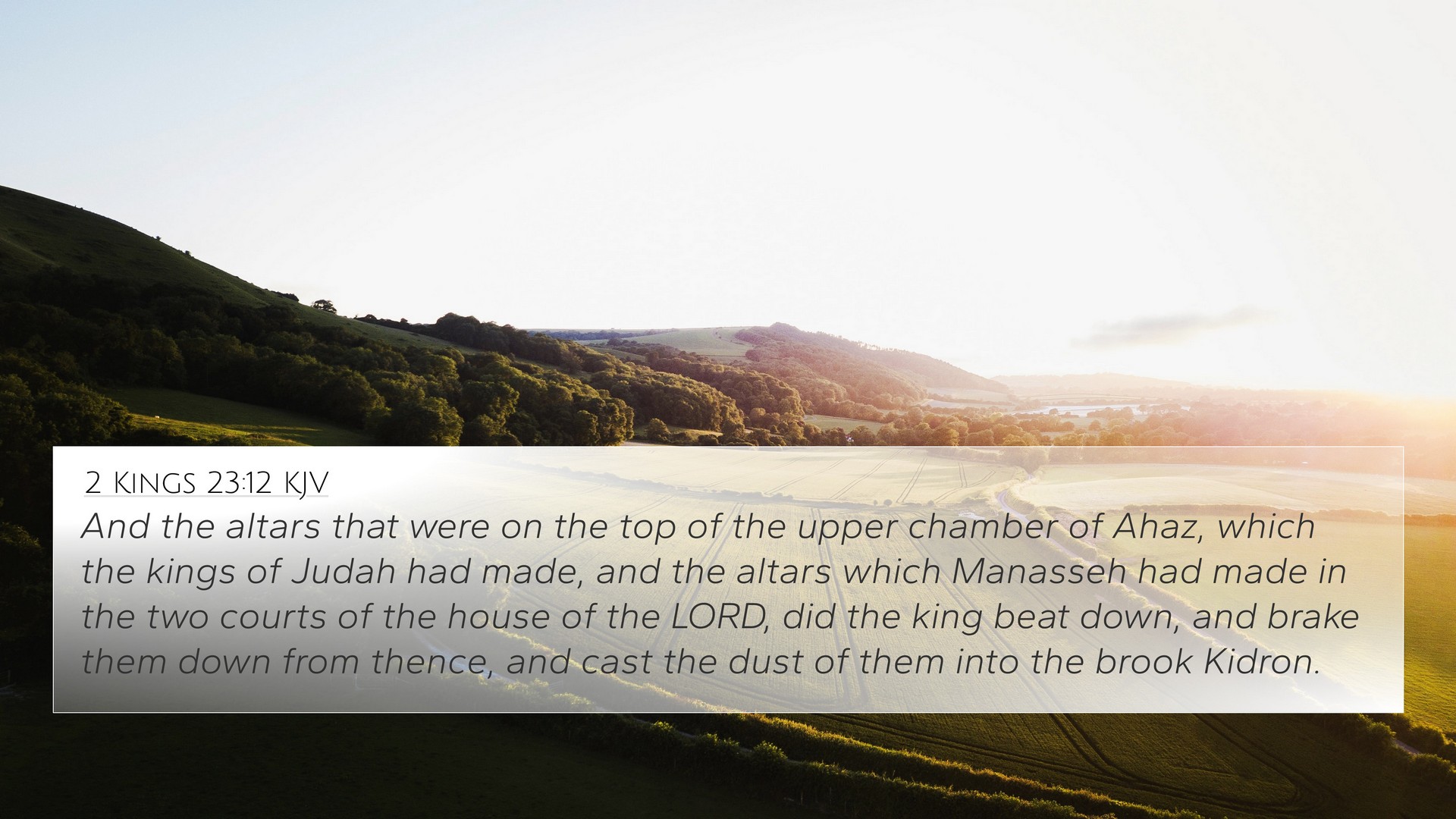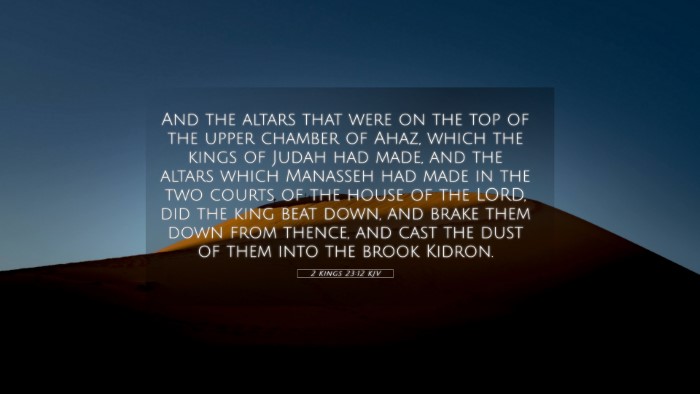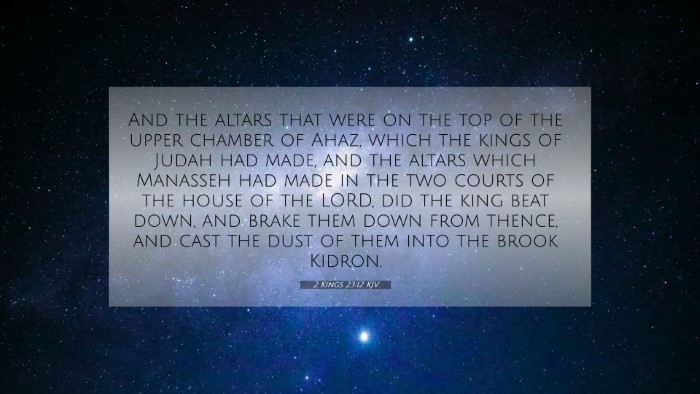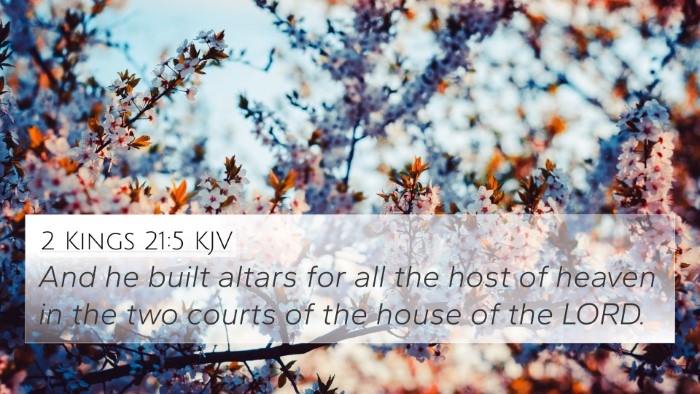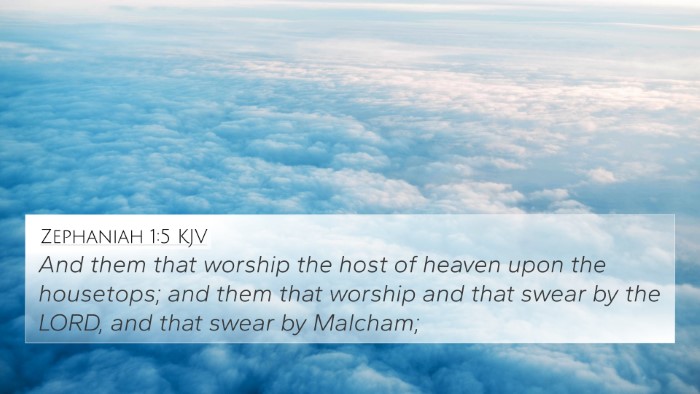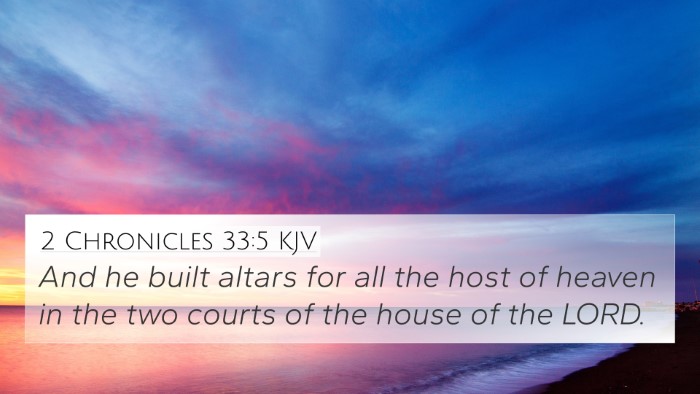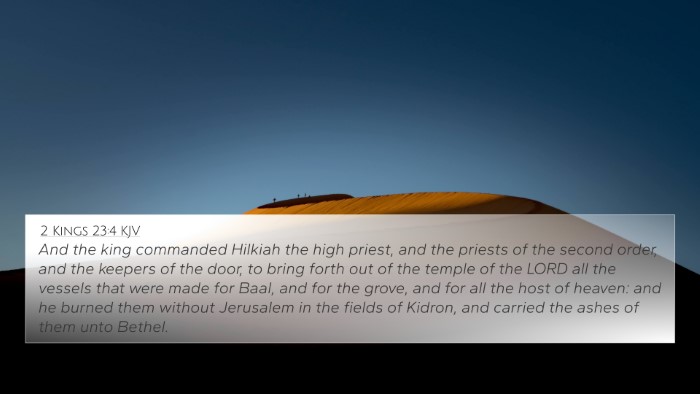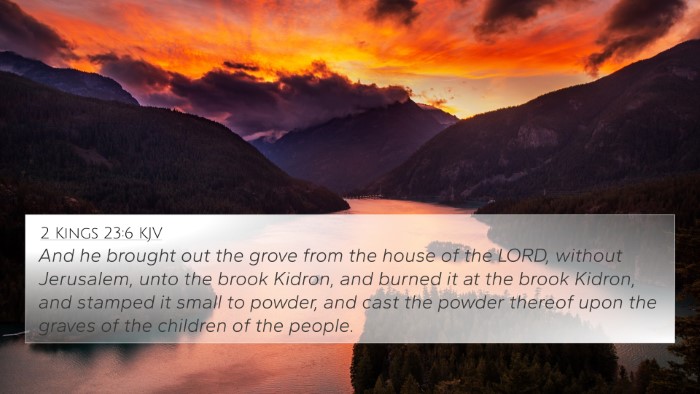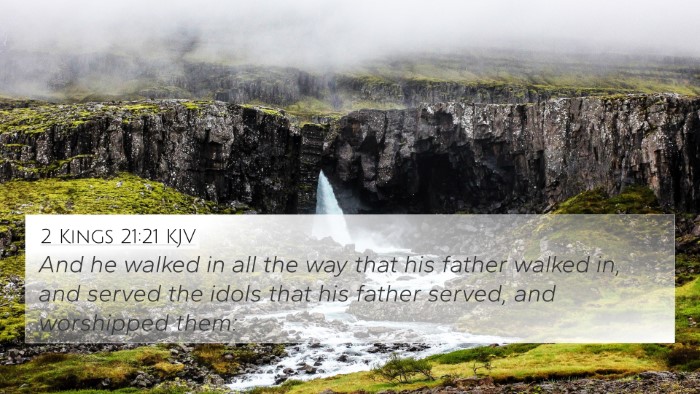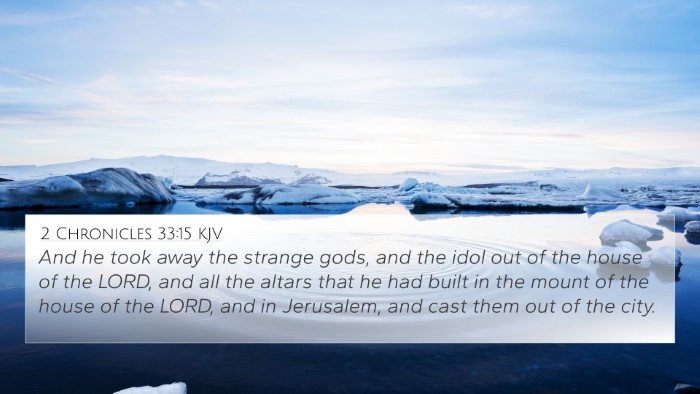Understanding 2 Kings 23:12
2 Kings 23:12 presents a pivotal moment in the history of Israel during King Josiah's reign, showcasing his fervent commitment to restoring proper worship in the land. This verse reads:
"And the altars that were on the roof of the upper chamber of Ahaz, which the kings of Judah had made, and the altars which Manasseh had made in the two courts of the house of the Lord, did the king beat down, and broke them down from thence, and cast the dust of them into the brook Kidron."
Verse Analysis and Interpretation
In this verse, King Josiah's actions reflect a strong opposition to idolatry and a passionate desire for purity in worship. The altars mentioned represent the corrupt practices that had infiltrated the worship of Yahweh, largely due to the influence of previous kings such as Ahaz and Manasseh. The act of destroying these altars symbolizes a significant reform movement aimed at returning to true worship and faithfulness to God.
Insights from Commentaries
- Matthew Henry: Henry emphasizes that Josiah's reforms were bold and decisive. He points out that the destruction of the altars on the roofs signifies a direct challenge against not only idolatrous worship but also the secrecy of such practices that had become commonplace in Judah.
- Albert Barnes: Barnes remarks on the significance of the Kidron brook, where the ashes of the destroyed altars were cast. He suggests that this act served as a symbolic cleansing of the city and a stark rejection of past corruptions.
- Adam Clarke: Clarke provides context to the spiritual and political climate of the time, highlighting that Josiah's reforms were necessary for restoring God's favor upon the nation. He underscores the importance of the physical removal of idolatrous symbols to signify a spiritual shift in the hearts of the people.
Bible Cross-References
This verse has numerous cross-references that highlight recurring themes of idolatry, worship, and God's judgment:
- 2 Chronicles 34:3-7: This passage details Josiah’s reforms and emphasizes his zeal in removing idols from the land.
- 2 Kings 21:3: This verse discusses Manasseh’s promotion of idolatry, providing a backdrop to Josiah’s reforms.
- Deuteronomy 12:1-5: Here, the Lord commands the Israelites to destroy pagan altars, establishing the foundation for Josiah’s actions.
- Jeremiah 7:30-31: These verses lament the people’s idolatry and serve as a warning against perverting the worship of Yahweh.
- Isaiah 57:5-7: Isaiah speaks against the idol worship prevalent in Judah, parallel to the reforms initiated by Josiah.
- 1 Kings 14:23: This verse illustrates the kind of idolatry that had previously gripped Israel and serves as a stark contrast to Josiah's reforms.
- 2 Kings 18:4: Hezekiah, Josiah's predecessor, also destroyed idol worship, showing a lineage of reformation.
Thematic Connections
The act of tearing down altars as recorded in 2 Kings 23:12 also resonates with broader themes found throughout scripture:
- Repentance: The destruction of idols is a powerful metaphor for repentance, as seen in Acts 19:19, where believers burned their magic books after coming to faith.
- Purity of Worship: Jesus echoes the idea of worship in spirit and truth in John 4:24, aligning with Josiah's intentions.
- God's Sovereignty: The sovereignty of God over idols is proclaimed in Isaiah 44:9-20, showing the futility of idol worship.
Conclusion
In summary, 2 Kings 23:12 encapsulates a transformative moment in Judah’s history, characterized by a strong movement towards spiritual purity as led by King Josiah. The insights drawn from historical texts and theological reflections underscore the importance of turning away from idolatry and restoring rightful worship towards God.
